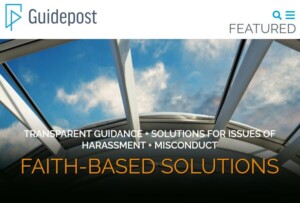
The SBC’s Website Database for Sexual Abusers Launches Today: 4 Reasons Why It Will Be Pure Trash
As Southern Baptist messengers ready to get their first peek at the multi-million dollar Ministry Check website, courtesy of the Abuse Reform Implementation Task Force (ARITF), it’s worth pointing out that it was a garbage website before a recent update, and it’s a garbage website now. According to ARITF Chairman Marshall



